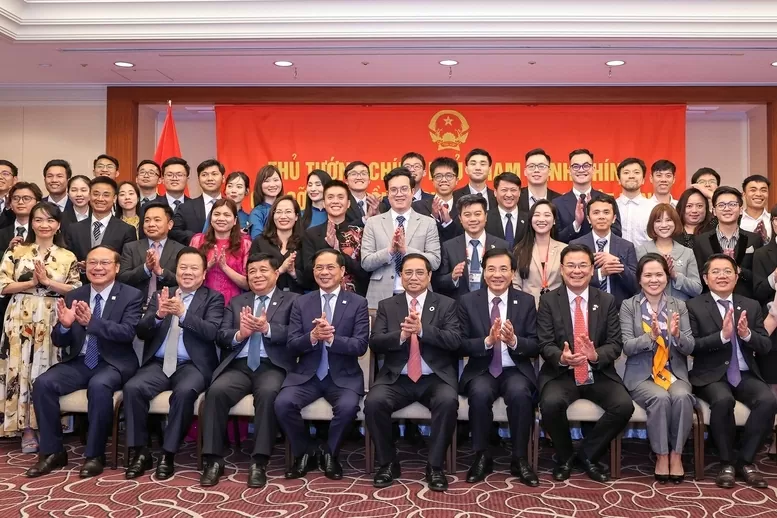 |
| Prime Minister Pham Minh Chinh met with the Vietnamese community in Japan on the occasion of his official visit to Japan in May 2023. (Source: VGP) |
The Party Committee in Japan has 41 affiliated Party cells, including 6 representative agency Party cells, 2 spouse Party cells, 1 Press Party cell, 1 USC shipbuilding Party cell, 2 overseas student Party cells, 29 combined overseas student - trainee Party cells (919 Party members, accounting for more than 85% of Party members operating in Party cells outside the representative agency - CQDD). In addition, there are 50 individual Party members working and studying in remote areas, outside the island, not qualified to establish Party cells.
In recent years, the Vietnamese community has grown steadily, with more than 630,000 people currently living, studying and working in all 47/47 localities of Japan.
According to a report by the Immigration Bureau of Japan, as of January 2025, the number of Vietnamese international students in Japan reached about 95,000, studying at universities, colleges and Japanese language schools, most of whom are self-funded. Japan currently has 257 LHS party members, accounting for 24% of the total number of party members in Japan (1,072 party members).
Thoroughly implementing the Party's guidelines, policies and guidelines, especially Regulation No. 86-QD/TW dated October 28, 2022 of the Secretariat on the duties of Party members and the management of Party members abroad, the Embassy always considers Party work as the "focus of the focus", investing resources and intelligence to best perform related tasks. Accordingly, the Party Committee in Japan pays great attention to the management of Party members and Party development in LHS and considers this one of the important tasks due to the following characteristics:
Firstly , the composition of LHS party members is very diverse, from professors, university lecturers to university students, Japanese language school students; studying and working in many fields...
Basically, most Vietnamese intellectuals in Japan are party members, a force with high awareness, participating in the fields of teaching, research, and development of science and technology... including new technologies such as quantum, semiconductor, AI, digital transformation...
Second , the party membership changes rapidly, about 30% annually due to visa expiration, internships, studying abroad...
Third , LHS party members do not live and work in a concentrated manner, but are spread across Japan with some major centers being Tokyo, Osaka, Nagoya, Hokkaido and Fukuoka...; their activities are diverse, with party cells, joint activities or individual activities.
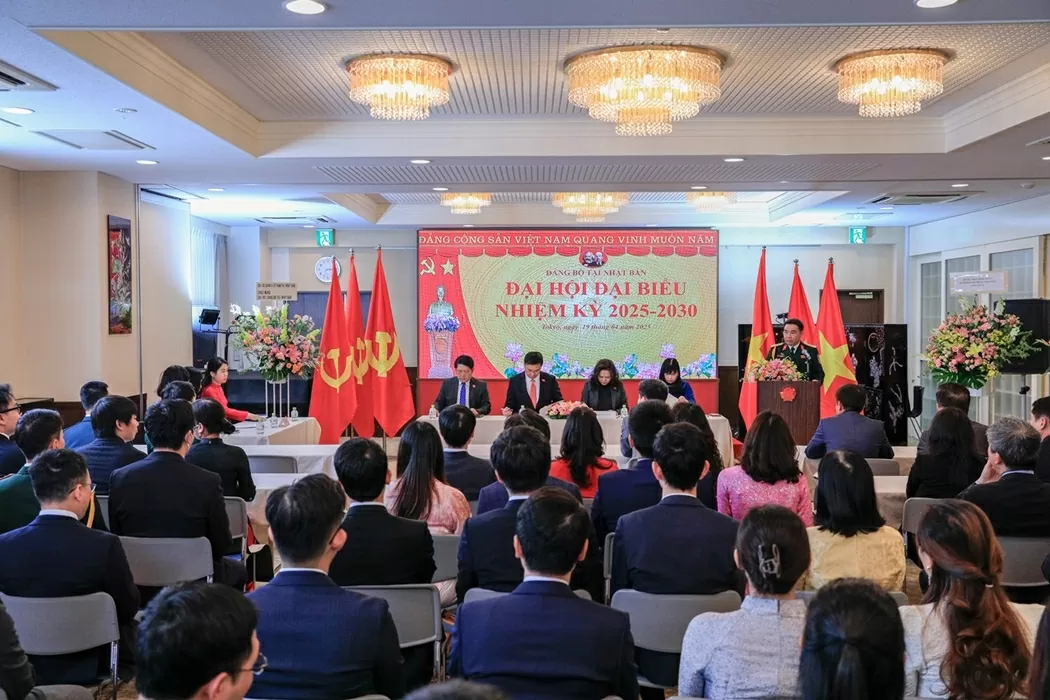 |
| Congress of Party delegates in Japan for the 2025-2030 term. (Photo: Vietnamese Embassy in Japan) |
Management of LHS party members in the area
Deeply aware that the intellectuals and scientists are the core elements to realize the major goals of the Party and State in the development of the new period, which are science and technology, innovation; the Party Committee in Japan has implemented many positive, creative and flexible measures in the management of LHS party members, supporting and creating conditions for them to maximize their capacity, strengthen solidarity, and work towards building their homeland and country. Specifically:
Firstly , perfecting Party cells so that all Party members can participate in Party activities; supporting and creating maximum convenience for Party members to complete procedures to transfer activities from the country to the Party Committee in Japan; receiving, guiding, and arranging Party activities according to the organization and form appropriate to each subject.
Where conditions permit, establish party cells according to the nature of work, study or the location of residence, study or work of party members. Where conditions for establishing party cells are not met, implement the regime of party members living separately.
Party cells with a large number of party members are instructed to divide the cells into party cells in schools and residential areas. The cell committee structure is divided equally into party cells to facilitate the management of party members, carry out the activities of the cell, and also create conditions for party members to participate in activities and complete assigned tasks well.
Second, regularly consolidate and improve the Party cell committee with sufficient numbers, capacity, moral qualities and methods of Party work. Priority is given to selecting Party members who are postgraduates, LHS or former LHS who meet all standards, have high prestige, and are enthusiastic about Party work to participate in the Party cell committee to be able to effectively manage the activities of the Party cell.
Party members holding positions in Party committees, authorities, and organizations in agencies, lecturers in universities, and cadres sent by provinces and cities to study or have studied, worked, or participated in union activities because these comrades have gone through practical work and have good ideological stances and experience in organizing, leading, and operating Party cell activities.
Third, strengthen the direct management of the Party Committee. The Party Committee establishes a list of focal points of subordinate Party Committees, connects, disseminates, and thoroughly grasps documents of the higher-level Party Committees, exchanges and guides Party work and Party member management work regularly to maintain and improve the quality of Party cell activities.
At the same time, promptly disseminate policies, thoroughly grasp resolutions and directions of higher-level Party committees, new policies, laws of the Party and State, current affairs at home and abroad to Party members; resolve specific, practical issues, in accordance with the functions and tasks of Party cells outside the Party Committee, respond to the legitimate aspirations and wishes of Party members and the masses, so that all Party members understand and clearly identify their positions and tasks, and strive to fulfill assigned tasks well.
Fourth, building a clean and strong party organization, doing a good job of evaluating and classifying party organizations and the quality of party members every year is the basis for good management of party members. With their role as the political core, party cells headed by comrades at the Party Committee level lead party members and the masses to well implement the foreign policies and guidelines of our Party and State, uphold the sense of responsibility, promote the spirit of initiative and creativity, and successfully complete the task of studying.
In addition, actively participate in association activities to promote community solidarity and mutual support in study and life; strictly comply with regulations of representative agencies, perform well in people's diplomacy, organize activities to introduce the image of the country and people of Vietnam to international friends, contributing to strengthening and developing diplomatic relations between our country and the host country.
The Party Committee in Japan has actively guided and supported Party members to organize associations/unions according to their fields and expertise to maximize their capacity, contribute to the locality and community, and turn towards the homeland such as: Association of Intellectuals, Association of Women Intellectuals, Vietnam Association for Digital Transformation in Japan (VADX)... The Embassy also actively supports associations/unions in professional activities (connecting associations and unions with Japanese localities...).
The Association of Vietnamese Intellectuals in Japan and the Association of Vietnamese Youth and Students (VYSA) have had many practical activities towards the country such as organizing the Forum of Vietnamese Intellectuals in Japan and many seminars and talks with the topics "Vietnam's transformation: New values - new ways"... The Association of Vietnamese Youth and Students has organized many cultural festivals, culinary festivals, Ao Dai performances, job counseling for young students, supporting flood victims in the country...
Fifth , closely link the work of party member management with the work of inspection, supervision, and internal political protection, and fight against bribery and enticement plots of hostile forces; and strictly implement discipline.
Sixth , do a good job in party development; promptly commend and reward party members who have excellently completed their tasks. In 2024, the Party Committee awarded Certificates of Merit to 177 party members who have excellently completed their tasks.
Seventh , promote creativity in party work, especially in organizing party cell activities with attractive and practical topics, attracting the participation of party members and effectively contributing to the research, study and work of each party member.
Eighth , combine party work with community work, coordinate with relevant Japanese agencies (National Police...) to develop a plan to disseminate the law to the community, including students, to raise awareness, ideology, politics, and reduce law violations in Japan.
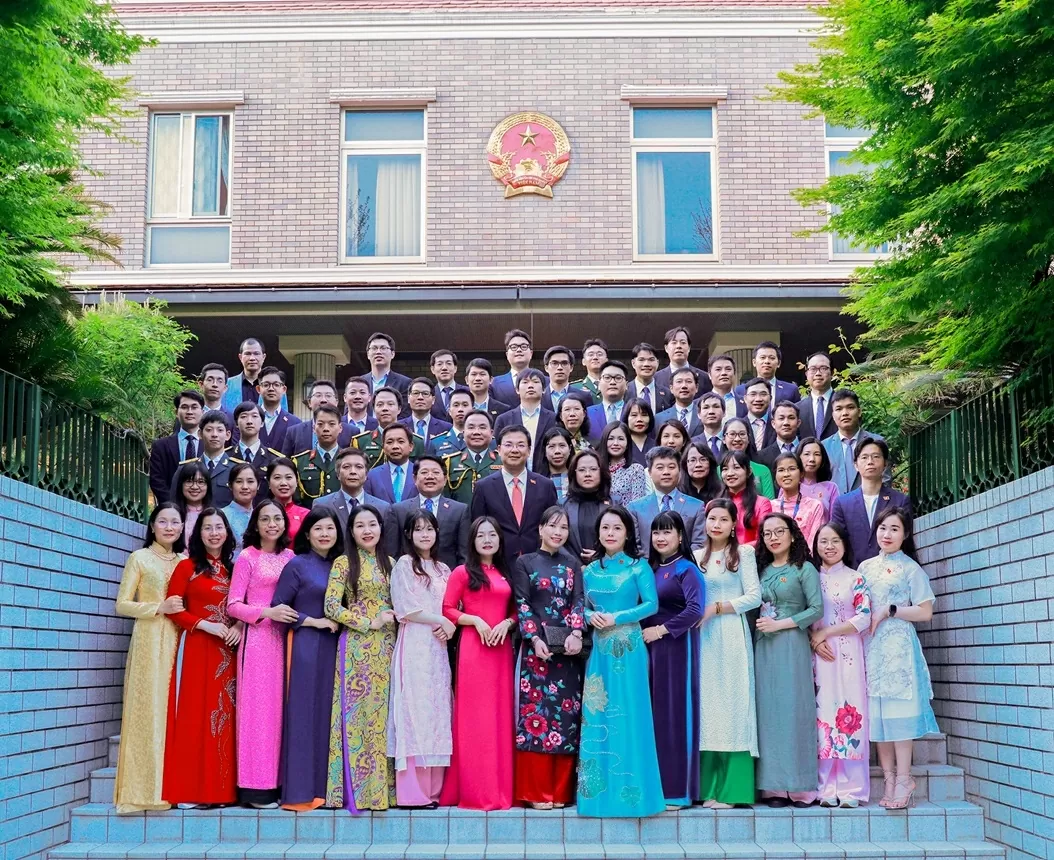 |
| Congress of Party delegates in Japan for the 2025-2030 term. (Photo: Vietnamese Embassy in Japan) |
Strengthening Party development in LHS
The Party Committee in Japan always considers Party development work as one of the key tasks; directs subordinate Party Committees to strictly follow regulations, processes, and procedures on admitting Party members and recognizing official Party members for probationary Party members, focusing on quality, not chasing after targets and achievements.
The Party Committee has directed its subordinate Party Committees to develop annual plans for developing Party members; select outstanding people with good political and moral qualities, correct, pure and clear motives and ideals for joining the Party, must be qualified and effective in work, study and have many contributions to community work in the locality.
From the beginning of the term to June 15, 2025, the entire Party Committee admitted 141 party members (including 119 LHS party members); recognized 148 probationary party members as official party members. From the beginning of 2025 to present, 19 new party members have been admitted (including 18 LHS party members) and 20 probationary party members have been recognized as official party members.
In the work of party development, the Party Committee has the following basic advantages:
Party committees in Japan regularly receive leadership and direction from higher-level Party committees, Ministry Party committees, and coordination from associations.
The Party Committee in Japan with the Party Committee Office in Tokyo and Party Committee members at the Consulate General in Osaka and Fukuoka located in 3 locations across Japan, regularly direct and support the Party cells. In addition, the Party Committees of the subordinate Party cells basically have positions in agencies and schools, participate in the executive committees of mass organizations, and have many people who have held leadership roles in the youth, student, and international student movements, so the implementation of directives and resolutions is convenient for inspection, supervision, leadership, and direction in performing tasks.
The Party Committee and the representative office closely coordinate with relevant associations such as the Vietnamese Youth and Student Association in Japan (VYSA), encourage and support the Association's activities such as expanding youth and student branches in the provinces, thereby grasping and directly leading VYSA to operate in the right direction; through the Association's activities, disseminate the policies of the Party and State, current events in the country and internationally; combine and integrate political and ideological education, love for the homeland, solidarity, helping each other in studying and living... as well as through VYSA's activities to discover and foster positive factors, introduce them to the Party cell for training and development.
The Party Committee regularly directs Party cells to send Party members to participate as core members of the Executive Committees of Vietnamese community associations and coordinate with associations and unions to connect and support the community, thereby discovering outstanding people in the community.
Every year, graduate students and doctoral students who study in Japan under Government scholarships keep in touch with the Party Committee; the Party Committee learns about the aspirations for Party development among these LHS masses and introduces them to appropriate local Party cells.
The Party Committee directs and the Party cell pays attention to doing a good job of developing Party members right from the step of training and creating sources for Party members to assigning challenging tasks to the masses striving to join the Party in order to properly assess the motivation and capacity of the masses before the Party cell proposes to the Party Committee for consideration and decision.
However, the work of developing the party also faces some difficulties, including: The community of more than 630,000 Vietnamese people in Japan is mostly young and inexperienced, making them vulnerable to propaganda by hostile forces, especially in the ideological field.
The areas of living and working are scattered, not concentrated, spread across the territory of 47 provinces of Japan; the number of party members fluctuates frequently (about 30% annually), leading to difficulties in management and propaganda. Self-funded international students mainly study at language schools, with short study periods, not enough time to develop party members.
In many localities, there are very few party members, they are unstable, so they do not have enough conditions to establish party cells, party members have to join together or participate separately. Many organizations and associations, including VYSA, have difficulty in operating funds, so their influence in the community is not high.
Violating local laws is currently one of the major problems for the Vietnamese community in Japan, affecting the image of Vietnamese people in the eyes of local people.
Source: https://baoquocte.vn/dang-uy-tai-nhat-ban-va-cong-tac-quan-ly-cac-chi-bo-luu-hoc-sinh-321199.html




![[Photo] Bustling atmosphere at Ba Dinh Square on National Day](https://vphoto.vietnam.vn/thumb/1200x675/vietnam/resource/IMAGE/2025/9/2/c441c931800d4ff8a4a5b2ed4d4c496b)
![[Photo] The army marched proudly on the street with loud cheers.](https://vphoto.vietnam.vn/thumb/1200x675/vietnam/resource/IMAGE/2025/9/2/c0dc9a5121094991bd7c5a02166b3a4f)
![[Photo] Police blocks parade on Le Duan Street](https://vphoto.vietnam.vn/thumb/1200x675/vietnam/resource/IMAGE/2025/9/2/8f607af025d5437d828366c5e911bbda)
![[Photo] The heroic and lovely moment when the armored vehicle passed by Hanoi Flag Tower](https://vphoto.vietnam.vn/thumb/1200x675/vietnam/resource/IMAGE/2025/9/2/5b07b9f62ee94db287a0ae3a27b6db51)
![[Photo] Parade groups bid farewell to the people after completing mission A80](https://vphoto.vietnam.vn/thumb/1200x675/vietnam/resource/IMAGE/2025/9/2/36d202d43ecc4ca8aede59a0e99f32ed)









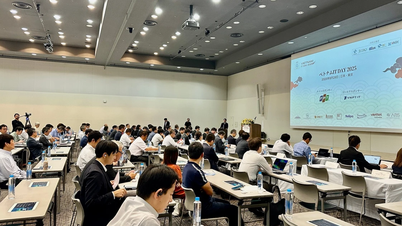
![[Video] Petr Tsvetov: Vietnam is warm and familiar](https://vphoto.vietnam.vn/thumb/402x226/vietnam/resource/IMAGE/2025/9/2/5f0c1739d6c34747b2da4c57cc5dc013)


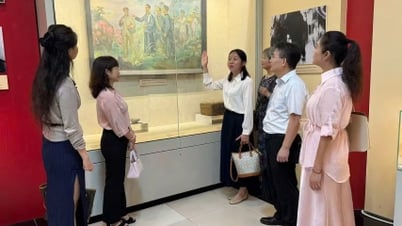
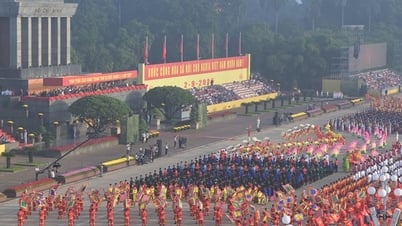

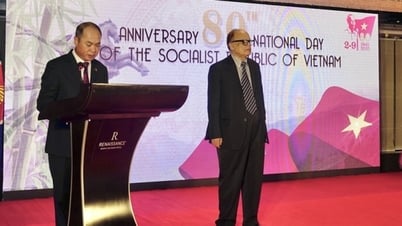
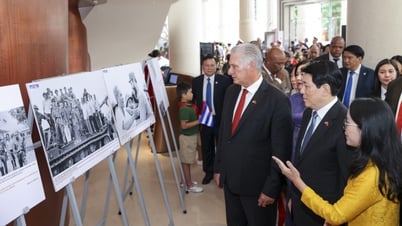
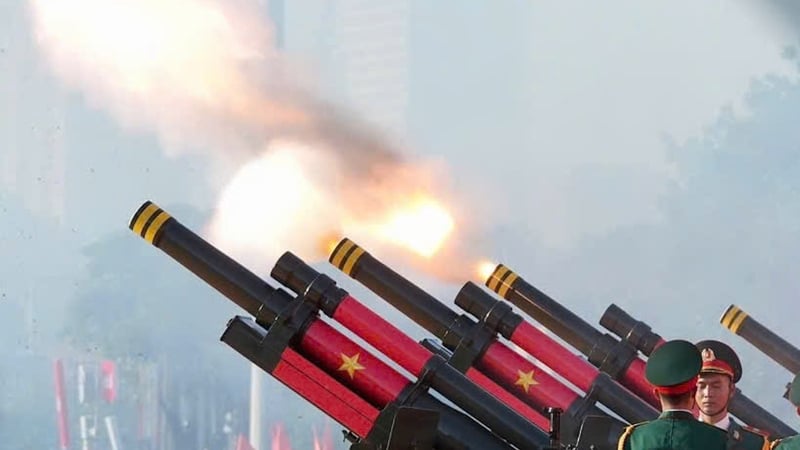


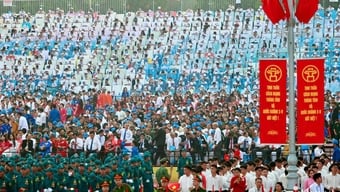

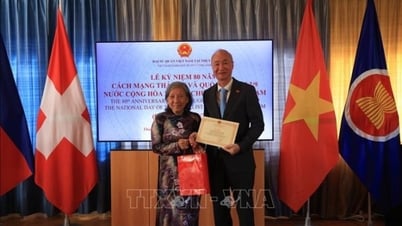
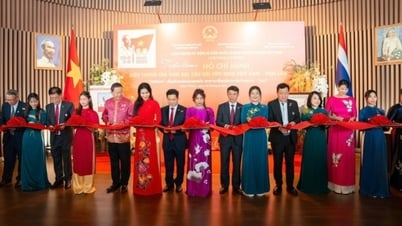

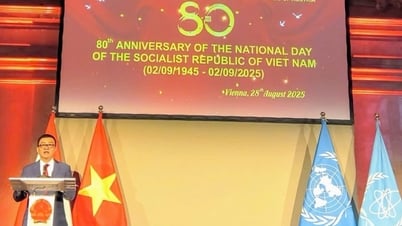
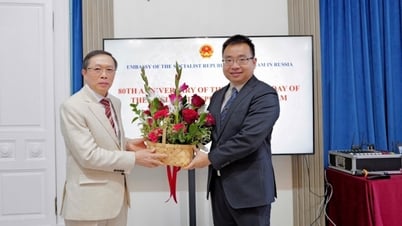




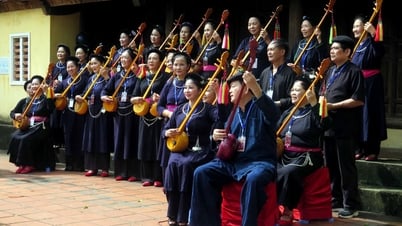

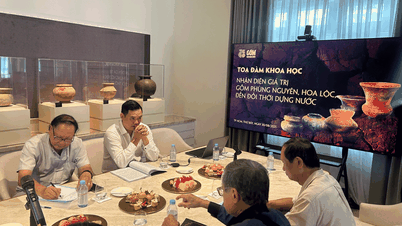

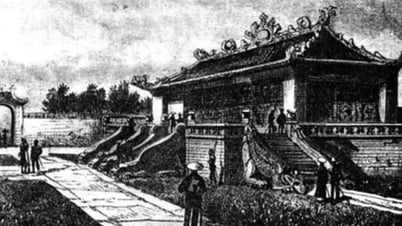

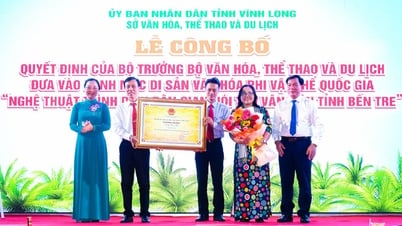




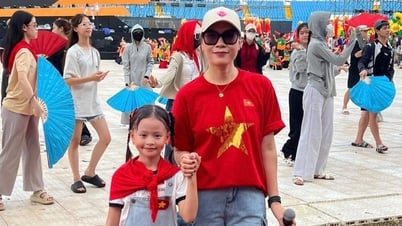
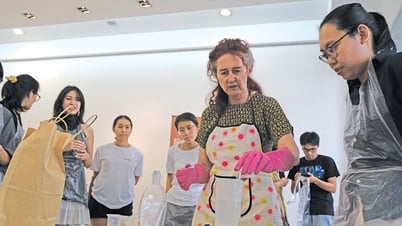

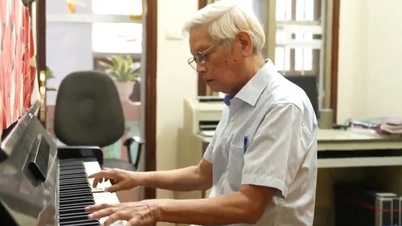










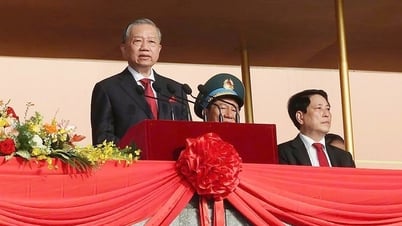

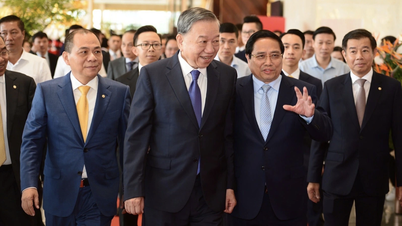

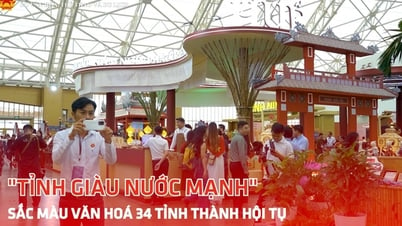

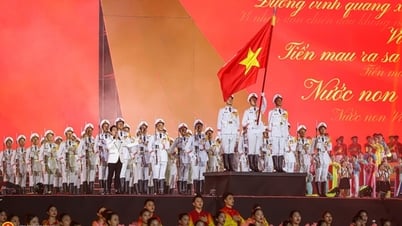
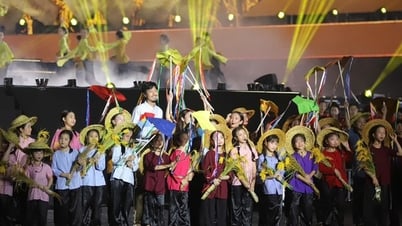
![[Live] Parade and march to celebrate the 80th anniversary of the August Revolution and National Day September 2](https://vphoto.vietnam.vn/thumb/402x226/vietnam/resource/IMAGE/2025/9/2/ab9a5faafecf4bd4893de1594680b043)


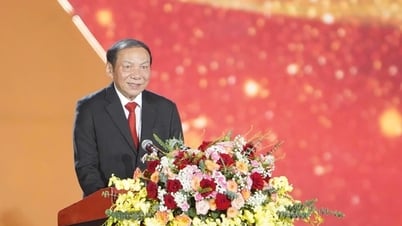




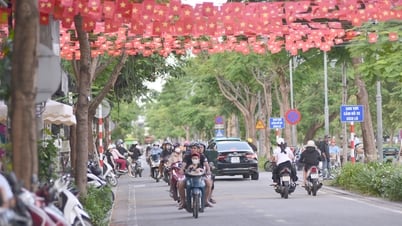





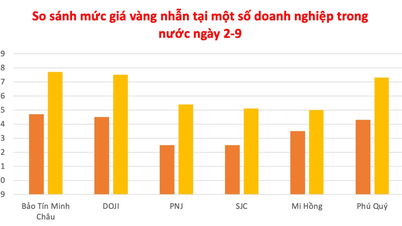

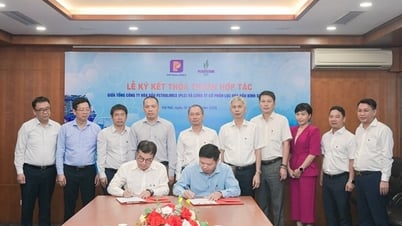


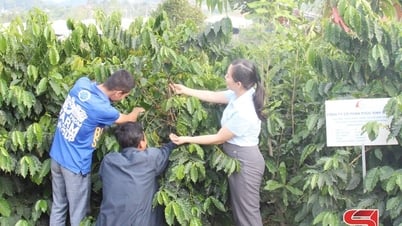


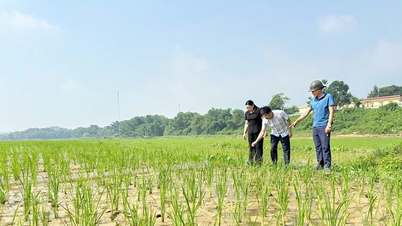


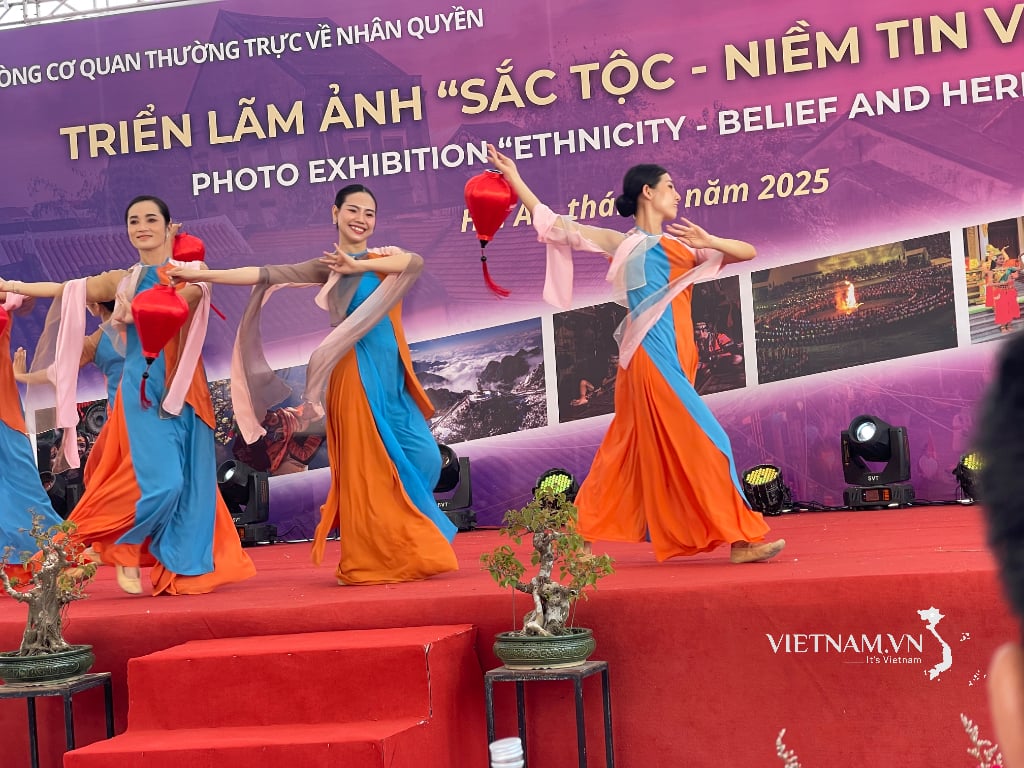
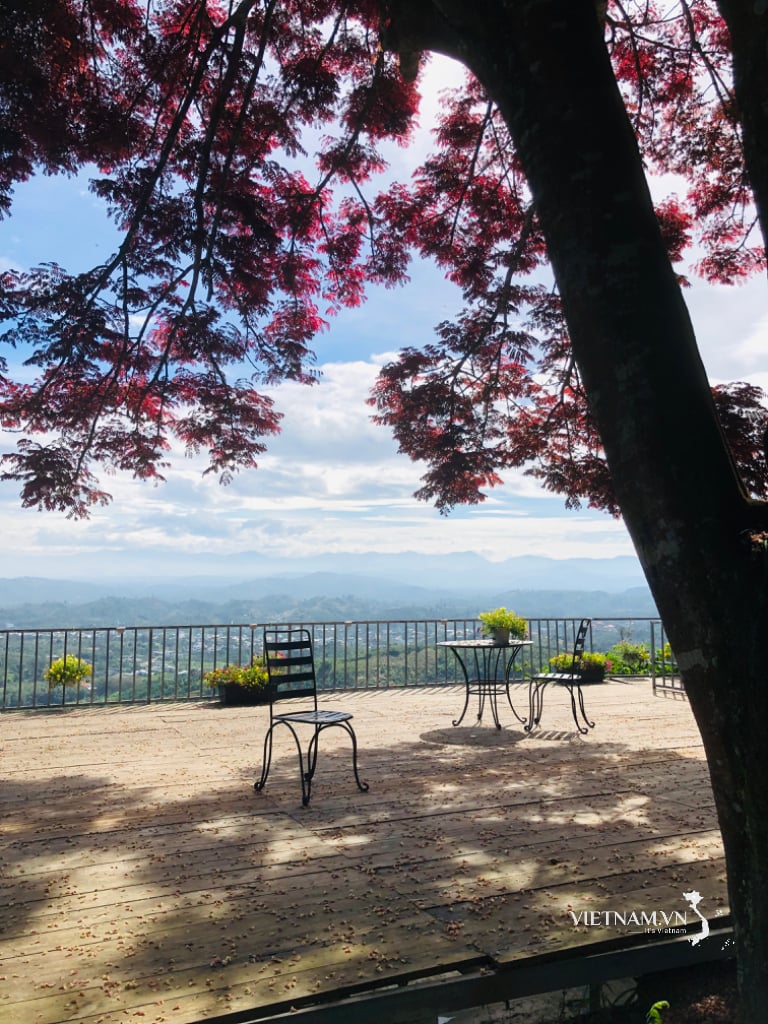

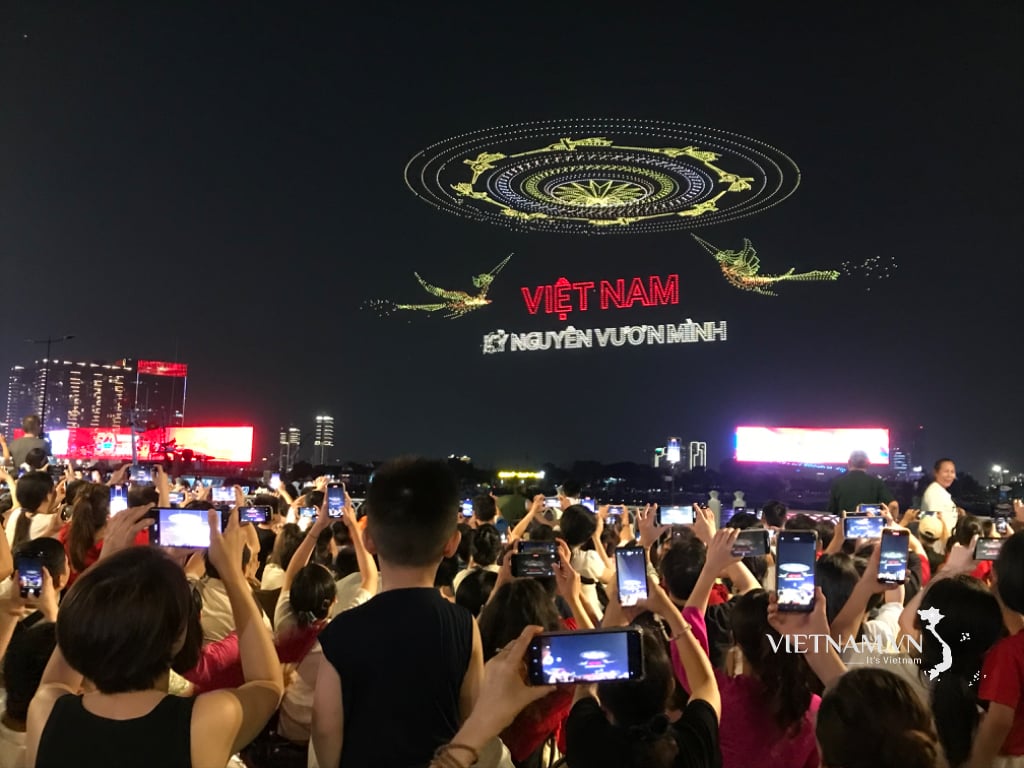
Comment (0)